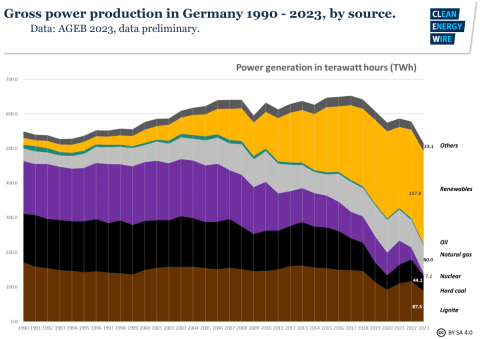EU approves €902 mn aid for Northvolt's EV battery plant in Germany
Decision helps keep the plant in Europe in the face of competing incentives from America
The European Union has approved €902 million in aid for Swedish company Northvolt to set up an electric vehicle battery plant in Germany. The aid is similar to incentives being offered by US Inflation Reduction Act and will help keep Northvolt's plant within Europe.
In a release, the EU said the approval was in line with its Green Deal Investment Plan and the aid was being approved "to support measures in sectors which are key to accelerate the green transition and reduce fuel dependencies." The EU also found that the project was being carried out in "a disadvantaged area" and that "the beneficiary [Northvolt] has set itself the goal of building the world's most environmentally friendly battery, which produces significantly less CO2 emissions than other companies when measured on produced level including recycling at the end of life."
Northvolt plans to build its third battery giga factory – of 60 GWh annual capacity – in the German city of Heide. The plant, Northvolt Drei, will be a highly-automated factory powered with renewable energy. The German government has been allowed to offer €700 million in direct grants and €202 million in guarantees to the plant, which is expected to begin production in 2026 and reach full capacity during 2029. Depending on battery size, it will support 800,000 to 1 million EVs a year.
Margrethe Vestager, Executive Vice-President in charge of EU competition policy, said in a release: "This €902 million German measure is the first individual aid being approved to prevent an investment from being diverted away from Europe, under the new possibility offered by the Temporary Crisis and Transition Framework since March 2023. It enables Germany to support the construction of Northvolt's production plant of batteries for electric vehicles. This is an important step for the electrification of transport in Europe, while preserving the level playing field in the Single Market."

Breakthrough in battery tech: Northvolt adds sodium-ion batteries to its portfolio -
Europe has approved emergency measures for state aid to several critical sectors, including new energy areas. Among the measures, until December 31, 2025, EU member states can:
- Set up schemes for investments in all renewable energy sources, including renewable hydrogen, biogas and biomethane, storage and renewable heat, including through heat pumps, with simplified tender procedures that can be quickly implemented
- Accelerate the diversification of energy supplies by supporting investments to phase-out fossil fuels, in particular through electrification, energy efficiency and the switch to the use of renewable and electricity-based hydrogen, with expanded possibilities to support the decarbonisation of industrial processes switching to hydrogen-derived fuels.
- Undertake measures aimed at supporting electricity demand reduction
- Formulate measures to further accelerate investments in key sectors for the transition towards a net-zero economy, enabling investment support for the manufacturing of strategic equipment, namely batteries, solar panels, wind turbines, heat-pumps, electrolysers and carbon capture usage and storage as well as for production of key components and for production and recycling of related critical raw materials.






















